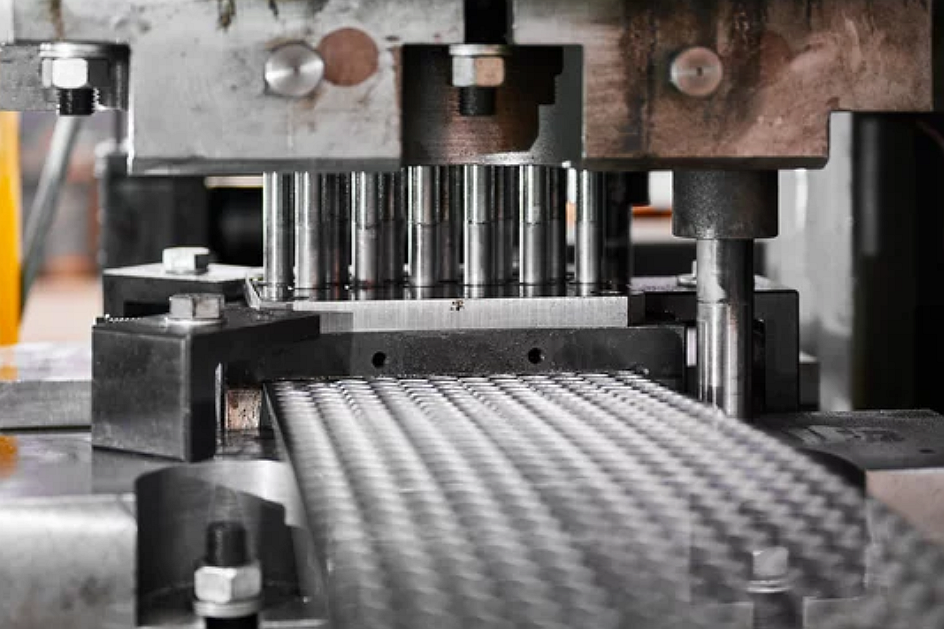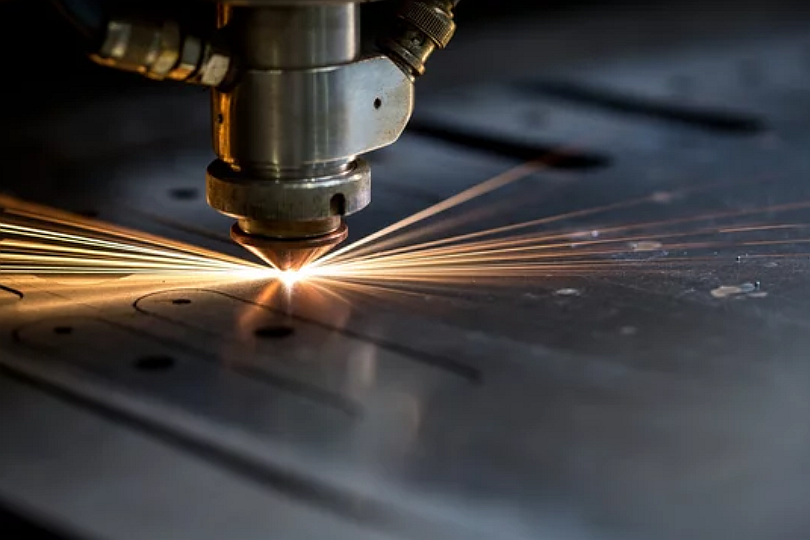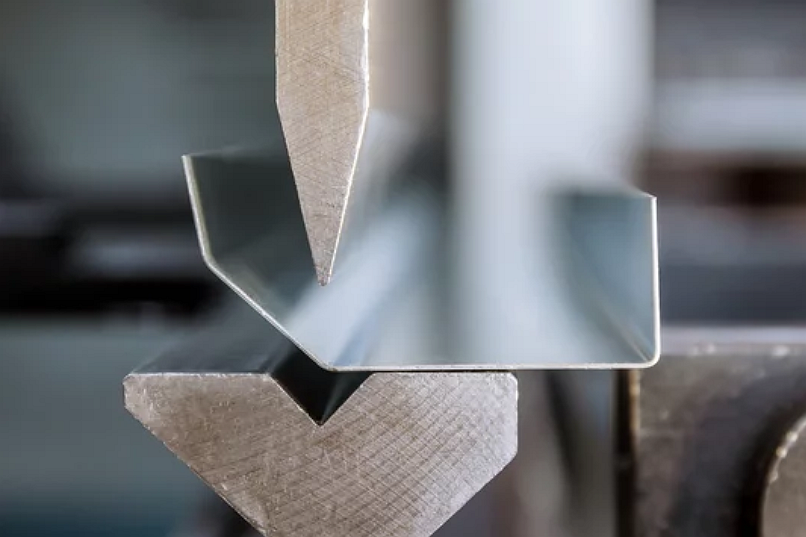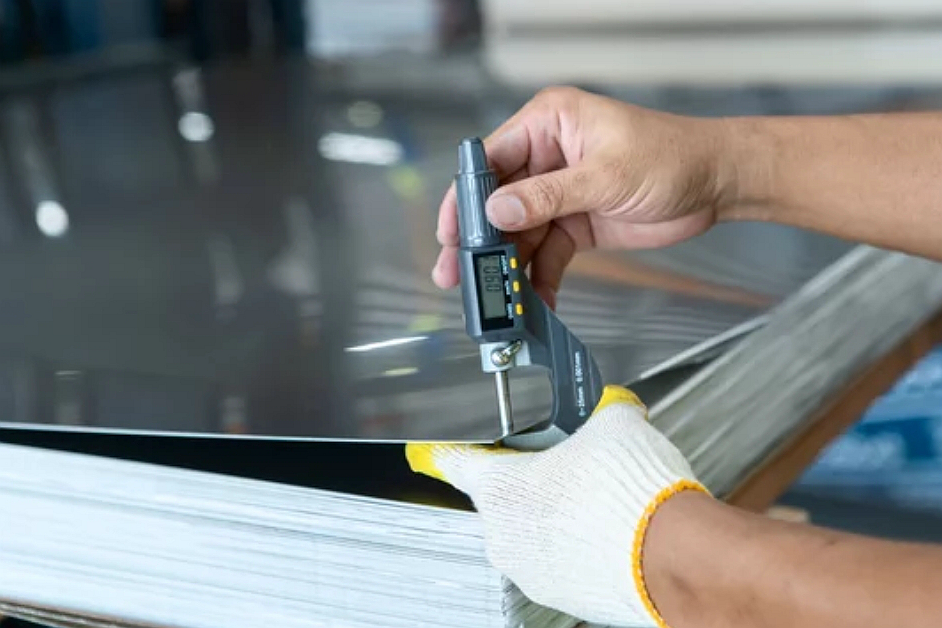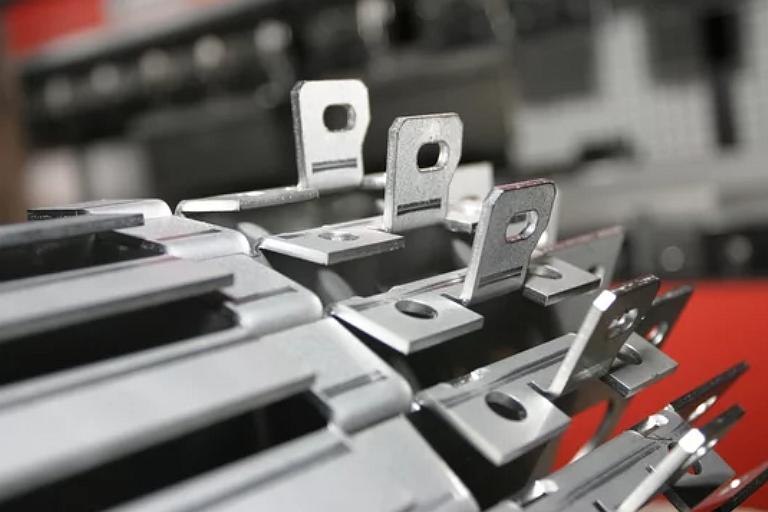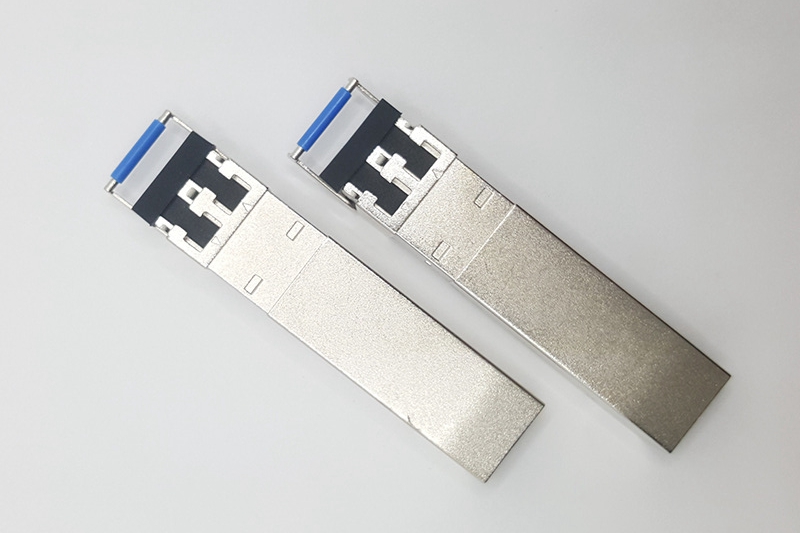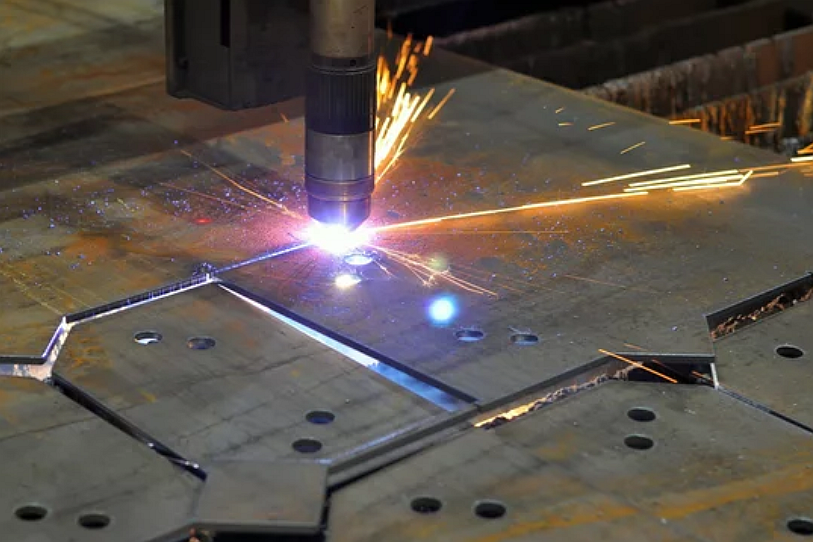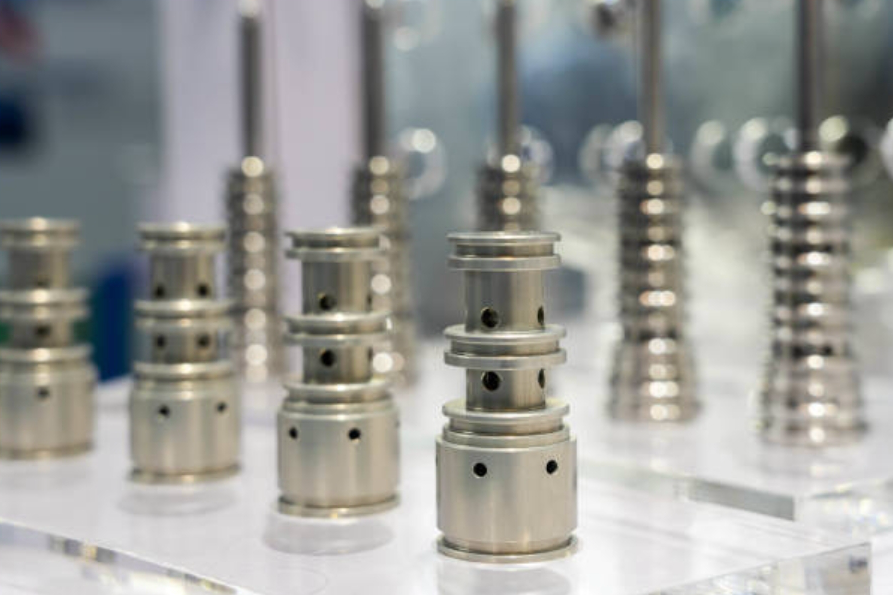How thick is sheet metal stamping?
Brief Overview of Sheet Metal Fabrication
Sheet metal fabrication is Neway's versatile and crucial manufacturing process to craft custom metal parts with precision. This method encompasses various techniques, each contributing to creating high-quality components. Here's a concise breakdown of sheet metal fabrication:
Metal Stamping
Metal stamping is a pivotal technique in Neway's sheet metal fabrication arsenal, used to shape metal sheets into desired forms.
Process:
Metal stamping involves feeding a metal sheet into a stamping press equipped with specialized dies and tools. The press exerts immense force to cut, bend, or shape the metal, creating precise components.
Materials:
Neway works with various metals, including steel, aluminum, copper, and alloys, employing metal stamping to produce parts across industries.
Tolerances:
Metal stamping achieves tight tolerances, commonly within ±0.05mm for high-precision parts. This accuracy ensures consistency and adherence to design specifications.
Advantages:
High Precision: Enables the production of complex and intricate parts with exceptional accuracy.
Cost-Effective for Mass Production: Well-suited for high-volume manufacturing, reducing per-unit costs.
Consistency: Ensures uniformity and consistency in part dimensions and quality.
Applications:
Metal stamping finds applications in manufacturing various components, from simple brackets to intricate parts for automotive, aerospace, electronics, and household appliances.
Laser Cutting
Laser cutting is Neway's precise and efficient sheet metal fabrication method. It utilizes high-powered lasers to cut through various materials with exceptional accuracy. Here's a concise overview:
Principle:
Laser cutting relies on a focused laser beam that melts, burns, or vaporizes the material, leaving a clean and precise edge. The process is computer-controlled, ensuring accuracy and repeatability.
Materials:
Neway employs laser cutting for various materials, including metals like steel, aluminum, and stainless steel, as well as non-metal materials such as plastics and ceramics.
Tolerances:
The method offers impressive tolerances, typically within micrometer ranges. Neway achieves precision up to ±0.1mm, ensuring the production of highly accurate and consistent parts.
Advantages:
Speed and Efficiency: Laser cutting is a rapid process, enabling quick turnaround times for production.
Intricate Designs: It excels at cutting complex and intricate designs, making it suitable for diverse applications.
Minimal Material Waste: The focused laser minimizes material wastage, contributing to cost-effectiveness.
Applications:
Neway applies laser cutting across industries to produce custom parts, including enclosures, brackets, and intricate components used in various sectors such as electronics, automotive, and medical equipment.
By leveraging laser cutting technology, Neway enhances its capabilities to deliver high-precision, tailor-made solutions to clients, ensuring the efficient realization of their specific design requirements.
Metal Bending
Metal bending is a crucial technique within Neway's sheet metal fabrication, enabling the shaping and forming of metal sheets.
Process:
Metal bending involves using specialized machinery, like press brakes, to apply force and reshape metal sheets into desired angles or forms. The bending process depends on material type, thickness, and the required angle.
Materials:
Neway works with various metals, including steel, aluminum, and alloys, employing metal bending to create components across industries.
Tolerances:
Metal bending achieves tolerances typically within ±0.25mm, ensuring precise shaping and forming of metal sheets to meet design specifications.
Advantages:
Versatility: Allows for creating various shapes and angles, accommodating diverse design needs.
Cost-Effectiveness: Efficient for producing parts with simpler geometries compared to other methods.
Strength Retention: Maintains the structural integrity of the metal while achieving desired bends.
Applications:
Metal bending creates brackets, enclosures, frames, and structural elements for the construction, automotive, aerospace, and electronics industries.
By leveraging metal-bending techniques, Neway demonstrates its capability to craft precise, custom-shaped components, meeting clients' specifications and contributing to the production of diverse products across multiple sectors.
Factors Influencing Sheet Metal Stamping Thickness
Material Type
Material type significantly affects sheet metal stamping thickness. Different materials have distinct characteristics that impact the stamping process:
Material Hardness: Harder materials, like stainless steel or high-strength alloys, might require greater force to deform, impacting the achievable thickness. Due to their malleability, softer materials like aluminum or copper can typically be stamped at thicker gauges.
Material Ductility: The ability of a material to deform without fracturing is crucial. Highly ductile materials allow for more significant deformation before failure, enabling the stamping of thicker sheets.
Springback: Some materials tend to return to their original shape after forming. This behavior influences the final thickness achieved after stamping. Materials with high spring backs require overcompensation in initial thickness to achieve the desired final thickness.
Work Hardening: Some materials, like certain types of steel, harden as they are formed, reducing their flexibility and potentially limiting the thickness that can be effectively stamped.
Tolerance and Precision: Different materials have varying tolerances and precision levels in stamping. For instance, aluminum might allow for thinner thicknesses with high precision compared to steel due to its properties.
Production Speed and Efficiency: The type of material affects the stamping process's speed and efficiency. Softer materials might allow faster stamping speeds due to easier deformation, impacting overall productivity.
For instance, when stamping stainless steel, which tends to be more challenging and less malleable than aluminum, the achievable thickness might be smaller due to the higher force required for deformation and potential limitations in flexibility.
Standard Sheet Metal Materials Used At Neway
In practical terms, when working with a specific material, Neway's engineers use comprehensive data on material properties, including hardness, elasticity, springback tendencies, and work hardening behaviors. This information guides the selection of appropriate thicknesses for sheet metal stamping to ensure precise and efficient manufacturing while meeting client specifications.
Determining the optimal thickness for stamping various materials is crucial for achieving precision and efficiency in manufacturing. The ideal thickness depends on the material used and the custom part's requirements. Let's explore the recommended thickness for stamping in the context of Neway's expertise in sheet metal fabrication.
Steel: For steel sheet metal, a standard thickness range is between 0.5 mm to 3 mm. This range ensures structural integrity and allows for easy forming during the stamping process. Neway's sheet metal fabrication utilizes laser cutting and metal stamping with a high precision of up to ±0.1 mm, ensuring tight tolerances and efficient production.
Aluminum: Aluminum sheet metal typically ranges from 0.2 mm to 6 mm thick for stamping applications. Neway's metal bending and stamping expertise ensures that aluminum parts meet exact specifications, focusing on achieving ±0.05 mm tolerances for precise and consistent results.
Brass and Copper: These materials, known for their conductivity and corrosion resistance, are often stamped in thicknesses ranging from 0.1 mm to 3 mm. Neway's precision metal stamping techniques and CNC machining enable the production of intricate parts with tolerances as tight as ±0.08 mm.
High-Strength Alloys: A 0.5 mm to 4 mm thick range is standard in high-strength alloy cases. Neway's advanced metal stamping capabilities, combined with laser cutting technology, contribute to the efficient production of parts with precise tolerances, ensuring structural integrity and quality.
It's worth noting that Neway's sheet metal fabrication incorporates cutting-edge technology and rigorous quality control measures to optimize efficiency and productivity. By leveraging a one-stop service approach, encompassing everything from rapid prototyping to on-demand production, Neway stands out in providing comprehensive solutions for custom parts across various materials and thicknesses.
Tolerance considerations
Tolerance considerations play a crucial role in determining the appropriate sheet metal stamping thickness, directly impacting the precision and quality of the final product. In the realm of Neway's expertise in sheet metal fabrication, here's how tolerance considerations influence the choice of thickness:
Material Uniformity and Springback: Tolerances become particularly important in sheet metal stamping due to material uniformity and springback. Thinner materials may be more prone to thickness variations, affecting the stamped features' accuracy. Neway's meticulous approach to maintaining tight tolerances, such as ±0.1 mm, ensures consistent results even with materials prone to springback.
Dimensional Accuracy: Achieving precise dimensional accuracy is a primary goal in sheet metal stamping. Tolerance considerations influence the selection of an optimal thickness range that allows for the accurate forming and shaping of the metal. Neway's expertise in metal stamping and laser cutting ensures that the dimensional accuracy of stamped parts meets or exceeds industry standards, often reaching tolerances as tight as ±0.05 mm.
Tooling and Die Wear: Tolerance considerations factor into tooling and die wear during stamping. Thicker materials may require more robust tooling, while thinner materials might be more susceptible to wear. Neway's commitment to efficiency and productivity is reflected in its use of high-quality tooling, minimizing wear and ensuring consistent performance over extended production runs.
Customer Specifications: Meeting customer specifications is paramount, and product design often specifies tolerance requirements. Neway's sheet metal fabrication process considers these specifications, offering the flexibility to work with a range of thicknesses while adhering to the specified tolerances.
Quality Control and Inspection: Tolerance considerations extend to the quality control and inspection processes. Neway's quality assurance measures involve rigorous inspections using advanced metrology equipment, guaranteeing that stamped parts meet the specified tolerances, whether it's ±0.08 mm for brass and copper or other precise values for different materials.
Neway's approach to sheet metal stamping thickness is intricately tied to maintaining tight tolerances. This commitment ensures that the final products not only meet but often exceed the precision requirements set by customers, contributing to the quality and reliability of the custom parts produced.
Industry Standards for Sheet Metal Stamping Tolerances
In sheet metal stamping, adherence to industry standards is paramount to ensuring product quality and meeting customer expectations. The acceptable tolerances for sheet metal stamping are often dictated by recognized standards, such as those established by the International Organization for Standardization (ISO) or industry-specific standards like those set by the Society of Automotive Engineers (SAE) or the American National Standards Institute (ANSI).
The industry standards for sheet metal stamping tolerances typically specify dimensional variations allowed in the final stamped parts. Factors like material thickness, part complexity, and the specific requirements of the end application influence these tolerances. Here are some general guidelines that Neway can consider:
ISO Standards: ISO 2768 is a widely recognized standard for general tolerances in linear and angular dimensions for metal cutting processes, including sheet metal stamping. It provides a framework for specifying tolerances based on the size and complexity of the part.
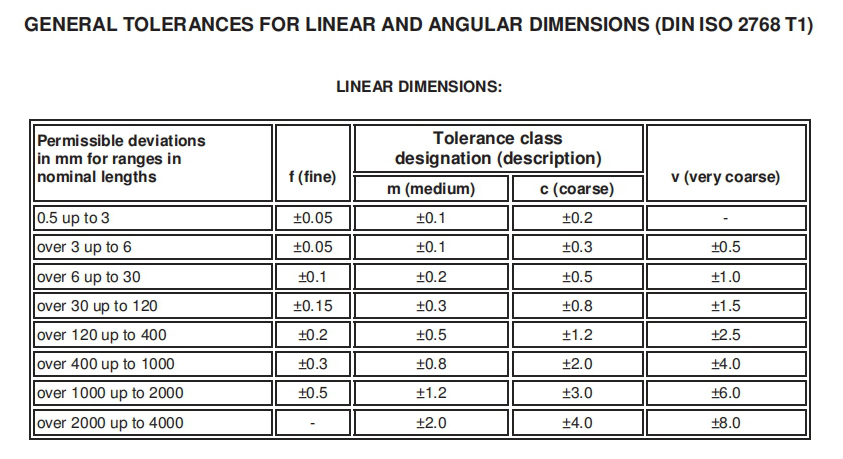
Material-specific Standards: Specific standards may outline tolerances for sheet metal stamping depending on the type of material used. For instance, the Steel Door Institute (SDI) provides standards for tolerating steel doors and frames.
Customer Specifications: Often, customers may have specific tolerance requirements for their projects. Neway must collaborate with clients to understand and meet these specifications closely.
For example, the ISO 2768 standard might define a tolerance class such as "fine" for small and simple sheet metal parts, specifying a linear tolerance of ±0.1mm and an angular tolerance of ±1 degree. A "medium" tolerance class with wider tolerances may be appropriate for larger or more complex parts.
Neway can leverage these industry standards as a benchmark for quality assurance in sheet metal stamping. By aligning with recognized tolerances, Neway ensures that its products meet or exceed the expectations of clients and industry regulators, reinforcing its commitment to delivering high-precision custom parts.
Customization Options for Sheet Metal Thickness
Sheet metal fabrication offers a range of customization options, especially concerning thickness. For your production needs, varying thicknesses enable tailored solutions. Here are some insights on customization options for sheet metal thickness:
Standard Thickness Ranges: Sheet metals come in standard thicknesses, often measured in gauge. Typical thicknesses range from 30 gauge (0.012 inches or 0.305 mm) to 7 gauge (0.1793 inches or 4.55 mm). These standard options offer versatility for different applications.
Custom Thicknesses: Tailoring thicknesses according to specific requirements is one of the strengths of sheet metal fabrication. Neway's expertise allows for customization within a wide range, ensuring precise dimensions for your components. It might involve thicknesses beyond standard ranges to meet unique project needs.
Material Considerations: Different materials behave uniquely when fabricated into sheet metal. For instance, stainless steel or aluminum might have varying standard thicknesses and available customization ranges. Neway's comprehensive knowledge covers these materials, ensuring precise thicknesses for each type.
Tolerances and Precision: Precision is pivotal in sheet metal fabrication. Neway's processes maintain tight tolerances, often within ±0.005 inches (0.127 mm) or even finer. It ensures accuracy and consistency in the final product, meeting stringent quality standards.
Application-Specific Thickness Optimization: Understanding the application's demands is critical. Neway excels in recommending optimized thicknesses based on structural requirements, weight considerations, and functional needs, ensuring the final part performs optimally while minimizing material usage.
Impact on Efficiency and Production: Tailored thicknesses can significantly impact efficiency. Thinner sheets enhance material usage and reduce weight, while thicker ones offer added strength and durability. Neway optimizes these factors to enhance productivity and efficiency in production processes.
Cost-Efficiency Balance: Customization of sheet metal thickness can influence production costs. Neway's expertise aids in striking a balance between achieving the desired thickness and optimizing costs without compromising quality.
By offering a spectrum of thickness options and leveraging precision manufacturing techniques, Neway ensures customized sheet metal solutions that align precisely with the diverse needs of your projects.
Advantages of Choosing Neway for Sheet Metal Stamping
Neway's Sheet Metal Stamping offers a multitude of advantages that set it apart in the industry:
Manufacturing Process Integration
Neway excels in integrating various manufacturing methods within sheet metal stamping, such as laser cutting, bending, and stamping. This cohesive integration ensures smoother production workflows, minimized error rates, and optimized resource utilization.
At the same time, Neway can also provide sheet metal connection processing such as Flanging and riveting, Rivetless connection (BTM), Pull rivets, Resistance spot welding, Screw connection, etc.
Sheet metal surface treatment processes include PVD (physical vapor deposition), polishing, powder coating, electrophoresis, etc.
One-stop Metal Stamping Service
Neway streamlines the production process by providing a comprehensive range of services under one roof. From initial design to rapid prototyping and on-demand production, customers benefit from a seamless experience, reducing lead times and increasing overall efficiency.
We provide a complete set of customized sheet metal services, from CAD drawing of sheet metal design to prototyping, final mass production, and quality inspection shipment.
Flexibility to Meet Diverse Customer Needs
Neway's adaptable approach caters to a broad spectrum of customer requirements. The flexibility ensures that customers' unique demands are met without compromising quality or timelines, whether it's intricate designs, specific material preferences, or varying production volumes.
We can customize sheet metal according to the different needs of customers, including mold, die tooling, material selection, thickness selection, precision control, on-demand customization, etc.
Stringent Quality Control
Neway prioritizes quality at every stage of sheet metal stamping. With meticulous quality control measures, including precise tolerance levels, thorough inspections, and adherence to industry standards, customers can trust in the consistent excellence of the manufactured parts.
Neway can fully guarantee that every shipment is 100% inspected for quality. Any unqualified products will be replaced unconditionally.
Through its integrated processes, comprehensive services, adaptability, and commitment to quality control, Neway stands out as a reliable and versatile choice for sheet metal stamping, meeting and exceeding diverse customer expectations.
